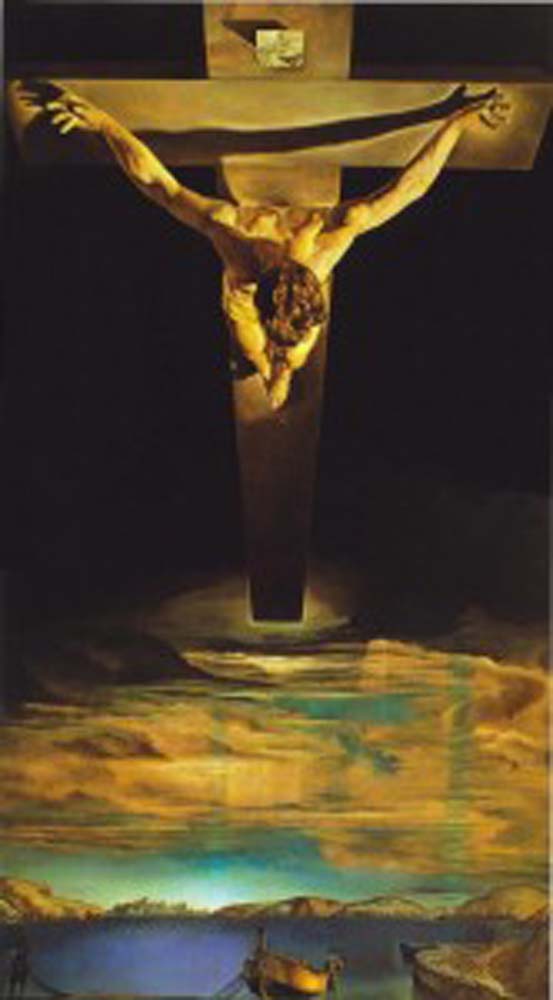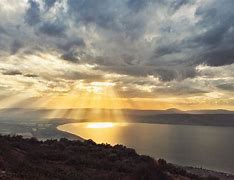Merry Christmas and Happy New Year’s Eve!
2023 was a wild year, with some of the best and worst moments of my life wrapped into 365 days. It’s led to a change in the way I see writing and evangelization, and that’s still a change I’m working through and discerning. But one of the major lessons our Lord taught me this year is that while there is no such thing as private sin, there is also no such thing as private grace.
This doesn’t mean that we share every personal grace and experience of Christ with others, and most certainly not on the internet. But since all gifts are intended to be returned to the Father, some of those gifts can and even should appear to the eyes of others as they are in transit back into His hands.
The public nature of grace is a driving factor in the ubiquity and profundity of literature. The words of writers become our words, the places their characters inhabit become our home. Sometimes this can happen in a very literal way, as I had the joy of experiencing in my semester in Rome. While in England, I felt truly at home and like I was returning to a country I had visited countless times before. Through the English literature that captivates me, a foreign country truly was a part of my home. I had walked on Baker Street, through Oxford, along an English country road.
And this is why Christians can have such hope in the home to come. Through God’s Word in Scripture, Tradition, and the Incarnate Second Person of the Trinity, He draws us to experience the land where “there shall be no more death or mourning, wailing or pain, for the old order has passed away (Rev. 21:4).” Through the mysterious gift we receive at Christmas, here in this valley of tears we receive a foretaste of heaven, where “the end of all our exploring will be to arrive where we started and know the place for the first time (T.S. Eliot, Little Gidding).”
So if your New Year’s resolution is to read one or fifteen books, here are some mini-reviews of the books that accompanied me in this past year!
First, let’s get this one out of the way:
T.S. Eliot: The Complete Poems and Plays
Technically, this was assigned reading for a class, but I’m including it because of how integral Eliot was in 2023. One of our paradigmatic classes as UD English majors is called Junior Poet, in which you immerse yourself in the lyric poetry of one prominent poet by reading his work, loads of secondary criticism, writing several papers and an annotated bibliography, and completing an oral examination panel with three professors who can ask you just about anything about your poet’s lyric corpus (it’s really not as bad as it sounds!). I’ll restrain myself from saying much more about this brilliant Anglo-Catholic convert. His lyric corpus is a true journey from a modernist Hell still very much alive in the post-modern world of social media and false connectivity, to a vision of the celestial beauty and communion which opened to us through the Incarnation of the invisible Word. Tom is terrific for some quirky, dark, yet hopeful Christmas reading, particularly his Ariel poems, Four Quartets, and Ash Wednesday.
Memory: Taking a picture of Eliot’s memorial stone in Westminster Abbey, thinking, “There’s no way I would pick him for Junior Poet, but I might as well take a picture because he’s important or whatever.”
Spiritual Reading
Dream Bigger, Dan DeMatte
This beautifully printed, leatherbound book from Sophia Institute Press is a 21-day guided retreat to discern your own desires and the way Christ longs to use those desires for His Kingdom. Though not perfect in theological precision, this was nevertheless a beautiful way to start a year that was such an intense exploration of the dreams I have for my life, and the mystery of our Father’s providence.
Memory: Reading this book during FOCUS’ SEEK conference, where I was blown away by the familial nature of the Church and the irreplaceable role that we each have within Christ’s immaculate Bride.
Francis of Assisi, G.K. Chesterton
So many of the Chesterton quotes that we see on Instagram or water bottle stickers find their origin in this short, but radiantly dynamic meditation on this beloved Saint. Chesterton seeks not to write a historically meticulous biography so much as a painting of Francis’ charism and soul, whose joy in Lady Poverty and the Crucified Beloved is a joy to which all souls are invited.
Memory: Reading this on the bus to Assisi, where I pulled a St. Clare and chopped off my hair!
Saint Edmund Campion, Evelyn Waugh
I had never before read Waugh’s prose, and I was not disappointed! Waugh traces the life of this beloved English martyr from his academic days in Oxford up to his death that converted St. Henry Walpole. In an age of increasingly anti-Christian hostility in the public sphere and in academia, Campion’s conversion, humble piety, and radical charity is a witness that we desperately need.
Memory: Finishing this just a few days before visiting Tyburn Tree where Campion was hanged, drawn and quartered.
The Way of Trust and Love, Fr. Jacques Philippe
So much of Fr. Jacques Philippe’s wisdom as a spiritual writer stems from his moving presentation of St. Therese’s spirituality to contemporary readers. This lovely treatise presents Therese not as a sickly sweet, unrelatable statue in the back of a church, but as the resilient daughter and missionary who constantly intercedes for us to trust in our Father’s merciful love and to lay all of our anxieties in His hands.
Memory: This was my Lenten reading during an unforgettable Lent in Greece, England, France, and Italy.
Calvary and the Mass, Fulton Sheen
I’m a little embarrassed to say that this was my first Fulton Sheen book, but what a way to start! This brief book offers a meditation on Christ’s last words and the way that at every Mass, we are invited to enter Christ’s presence on Calvary and behold His love that is no longer bloody, but is just as strong now as it was in 33 AD. I read this on Good Friday and found myself aching for the Easter Vigil so that I could go to Mass and experience what this book proclaimed!
Memory: Reading the whole book while waiting for the Good Friday liturgy at Santa Croce in Rome (it’s short and we arrived very early to get seats in the front of the church).
A Right to be Merry, Mother Mary Francis
This book is one of my favorites, and since it’s out of print I was ecstatic to find it on the bookshelves outside the chapel on our Rome campus. This book about Poor Clare nuns by a Poor Clare nun radiates the joy that so many of us have encountered in our teachers or friends in religious life. For those of us in the world, it offers so many valuable lessons about peace, stillness, and the gift of community.
Memory: Reading this on the train to Assisi when I traveled on my own so I could go back a second time!
The Story of a Soul, St. Therese of Lisieux
“Make St. Therese your girl,” a priest told me several summers ago. How she has never failed to amaze me with her example, intercession, and gentle reminders of the Lord’s love and my need for conversion. April 9th is the anniversary of her entrance into Carmel and was the date of Easter 2023 which I had the privilege to celebrate in St. Peter’s Square with Pope Francis.
Memory: Sitting in a precious Lisieux town house with a cup of tea, reading the childhood chapters of the book.
The Autobiography of Teresa of Avila
After years of picking it up and never finishing it, my trip to Avila finally gave me the motivation I needed to complete the Saint’s account of her eccentric, profoundly beautiful life. This beautiful work invites the reader to know Teresa better in the details of her life, in her brokenness and Christ’s ability to transform that brokenness into an endless fountain of grace for the Church. It also provides meditations on prayer and invitations to grow in deeper self-gift to the One who loved us first.
Memory: Edith Stein’s moment of conversion took place upon an all-nighter reading of Teresa’s autobiography. In imitation of my Confirmation Saint, I tried to read as much of the book as possible in one sitting on my couch in Avila, but I was exhausted by travel and fell asleep pretty quickly.
The Power of Silence, Robert Cardinal Sarah
Of all the books I’m writing about today, I think this is the one I recommend the most. In a world inundated by noise and hurriedness, this book exhorts the Church and her faithful to turn their efforts above all to a cultivation of contemplative prayer, only possible in authentic stillness and silence before our ineffable God.
How does this book fully apply to those of us in the world or in particularly active ministry? Although it takes personal discernment and discussion with others (we remain in community even in silence), the answer is not, “This is very nice for the cloistered Trappist interviewed in the book, but has little to do with the New Evangelization.” By frequently citing Mother Teresa and Pope Benedict XVI, who both had very active, missionary vocations outside cloistered grilles, Cardinal Sarah shows that divine intimacy is the end of all activity and that cor ad cor prayer in a darkened chapel conveys an eloquence and potency that the most moving conference talk cannot provide.
Memory: The friends who embody this book and inspire me to live the Gospel more fully.
Fiction
A Study in Scarlet, Sir Arthur Conan Doyle
Although I’ve loved Sherlock Holmes for over a decade, I had never read this first introduction to the world’s most famous detective. This novella isn’t as riveting as Holmes’ later adventures will be, but it is nevertheless worth it to be a fly on the wall when Holmes and Watson first meet and transform the mystery genre forever.
Memory: I literally couldn’t breathe when we stepped up from the Baker Street underground stop, so that was a little embarrassing. But it’s a precious memory to realize how much of an impact story-telling has on the way we perceive the world and how fictional characters in some way become real.
Brideshead Revisited, Evelyn Waugh
I was going to make a sarcastic joke about this being such a relatable coming of age story. But while my best friends and I did cart around a teddy bear as teenagers (though his name was Nelson, not Aloysius), the struggle to step outside the constraints of concupiscent desire and to surrender to grace is a universal experience. It is the decision that defines maturity, that determines one’s ability to leave behind the childish rebellion of sin and receive the beauty of the Church’s sacramental life with childlike faith and wonder. I believe that this book provides a powerful evangelistic message for the Church in the 21st century, with the novel’s panoply of wickedly, wonderfully real characters and profound theology of grace, mercy, and art. There is no failure on the part of catechesis, parenting, or society that can utterly prevent the Father from reclaiming His lost sheep.
Memory: Beginning this book in Oxford and finishing it on the metro into Rome on Holy Thursday, where there were many “a twitch upon the thread.”
A Tale of Two Cities, Charles Dickens
This was the first book to almost make me cry when I read it in grade school, and it was wonderful to re-experience as a very different reader. Detailed, humorous, and heart-rending, this beautiful story is an ingenious exploration of the relational nature of human persons, set against the background of the depersonalizing, isolating agenda of the French Revolution. One of my favorite parts of the novel (other than Mr. Lorry) is the depiction of fatherhood and daughterhood through the characters of Dr. Manette and Lucy. We all struggle with various forms of addictions, disordered thought patterns, and structures of sin, but through daughterly hope and fatherly sacrifice goodness and beauty prevail against loneliness, recalling all persons back to life.
Memory: Buying this book in Daunt Books during my real-life “Tale of Two Cities,” my 10-day trip centered in London and Paris.
The Two Towers, J.R.R. Tolkien
I hadn’t read this second book of The Lord of the Rings in nearly ten years, and this proved the perfect summer to re-read it. The book’s theme is hope, a trust in the resilience of good which is expressed through nature, sacrificial persons, stories, and above all, resurrection from the dead. The book ends with the reminder that in our darkest moments, our task is not to save the whole world, but simply to do that to which we are called in the moment. We must trust that our little yes to each task is enough, even when all seems to have ended in failure.
Memory: Talking about this book with a friend while walking in the green, good woods.
The Gaze of Jesus, Riccardo Bacchelli
Imagine looking at a medieval fresco that depicts Christ’s public ministry, arrest, and Crucifixion in one sweeping piece of art. This is the best way to describe this imaginative account of the Gadarene demoniac, who Jesus heals only to tell him to return home to his family, “rejecting” him as a disciple. Translated from the Italian by Anthony Esolen, this 20th century novel is somewhat difficult to review since I’m not familiar with the Italian 20th century tradition, other than knowing to follow the Dante. But while there are seeming frustrations in the pacing of the plot and anachronisms that would drive a history major berserk, the painting analogy helps the reader to see this work as a powerful meditation on the Gospel. Dark and bloody with an affair or two – like many a 20th century text – the book invites the reader into a form of Ignatian meditation on sin, grace, and Christ’s divine mercy, which does not always fulfill our immediate desires but will always give that which we need for salvation.
Memory: Reading the book in four days because I was on Christmas break and could read whatever I wanted!
There you have it: Larisa’s 2023 in literary review! I pray that you have a blessed new year, and that Christ draws you ever deeper into His merciful love in 2024! Happy reading!




















































